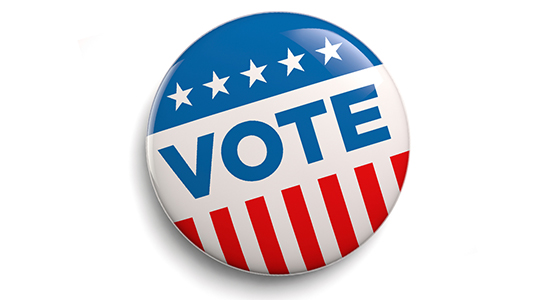
Jan. 6, 2016 – Black’s Law Dictionary defines an election as “the process of selecting a person to occupy an office (usu. a public office), membership, award, or other title or status.”
On Nov. 8, 2016, voters will choose a new President and Vice President, one-third of the U.S. Senate, the full House of Representatives, and many local races. How does the average voter sort through these candidates, election and voting laws, and other information?
They can go online. Here are some places to check out for your elections research:
1) The National Conference of State Legislatures offers a research tool called Elections and Campaigns. Under this heading are links to campaign finance information, election administration (featuring information such as 50 State Surveys on various topics), Initiative and Referendum, and StateVote Election Results and Analysis.
Beth Bland is a tech services librarian at Davis and Kuelthau in Milwaukee. Bland is a current member of the Law Librarians Association of Wisconsin (LLAW), a chapter of the American Association of Law Libraries. LLAW's Public Relations Committee coordinates regular contributions by its members to InsideTrack.
2) The Wisconsin Historical Society features an online exhibit entitled “That’s the Ticket,” covering presidential elections in Wisconsin from 1856 to 2008. The entire exhibit or individual election years can be downloaded as a PDF. An electoral map, the candidates, and a brief discussion of the issues and events (called Election Facts) are included as well as links to relevant photographs in the Society’s collection.
3) Wisconsin Vote is a project by Wisconsin Public Radio and Wisconsin Public Television and is updated during election season. The site features news, blogs, and links to program clips. The Resources tab features an FAQ on voting (e.g. how and where to vote), Voter Information links (such as finding your polling place), and Teacher Resources (a lesson plan called 30 Second Candidate).
4) Bring It to the Ballot is a website designed to help voters understand the new voter ID law. Features include What to Expect at the Polling Place, a multimedia section with videos and downloads, and information about how to get an ID.
5) My Vote Wisconsin is a website for Regular, Temporary Overseas, Military, and Permanent Overseas voters. Regular Voters, for example, can use Voter Search to see if they are registered, where their polling place is, and their voting history.
6) The Brennan Center for Justice at the New York University School of Law has an extensive section on Voting Rights and Elections on its website, including Commentary, Litigation, and Recent Research, with sub-issues such as voting reform and ballot design.
7) The Wisconsin Blue Book’s Chapter 10, via the Legislative Reference Bureau’s website, provides statistical information about recent Wisconsin elections (state and federal) with breakdowns by county, by ward, and by district.
8) The Wisconsin State Law Library offers a comprehensive Politics and Elections page on its website. Subject headings include Agencies and Departments (such as the Federal Elections Commission), Complaints, Lobbying, Recounts, and links to federal and state law.
9) Vote Smart provides free, factual, unbiased information on candidates and elected officials. Voters can search for a politician by name or zip code, and obtain information about candidates and officials, such as their bio, how they voted, their positions on issues, and funding/campaign contributions. The “My VoteSmart” section allows users to set up an account to track candidates, officials, and legislation.
10) The Government Accountability Board’s website features Quick Links to information such as results, statistics, and a campaign finance database. The Elections tab provides links to the type of voting equipment used by municipalities, recount information, and same-day registration information.
11) Our final stop is the website of your local municipality. For example, the City of Milwaukee’s Election Commission page provides local election results back to 1997 as well as campaign finance information, how to become a pollworker, how to run for public office, and Quick Links to polling locations, aldermanic maps, and school board maps.
Thomas Jefferson noted that “whenever the people are well-informed, they can be trusted with their own government; that whenever things get so far wrong as to attract their notice, they may be relied on to set them to rights.” With many sources available online, voters can start on that path.
